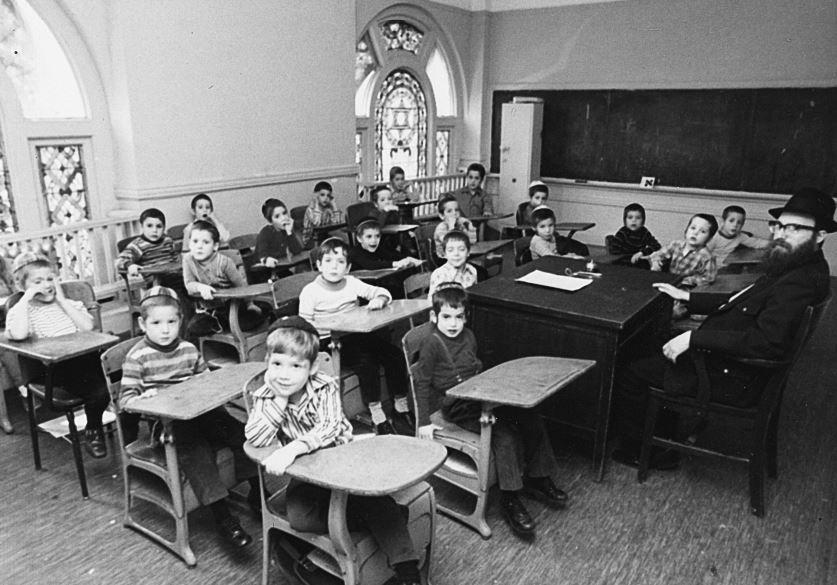It’s Time to Talk About: Where We Should Focus Our Energy In Education
Op-ed by rabbi Gershon Avtzon: This shabbas, Bamidbar 5785, is the Shabbas before the Yom Tov of Shavuos, when we celebrate the receiving of the Torah. The custom between Chassidim is to wish each other that we should accept the Torah with Simcha and “Pnimius” (it should affect us in a real and internal way). This would be an appropriate time to talk about an important topic in education: The importance of having joy and excellence in a part of learning and Yiddishkeit • Full Article
Around ten years ago, I had an informal education discussion with a friend of mine, Rabbi Yisroel Pinson (Shliach in Michigan and may Hashem send him a Refulah Shleima!) and he asked me the following question: If you had a son that had a natural talent (and possibility for real success) in one subject but was pretty weak in a different subject (excluding basic reading skills) , where would you focus your efforts? Those efforts could mean putting in the time yourself and/or hiring a professional tutor.
An example: Your son or daughter has a difficult time with language grammar and spelling but has a natural love for history and creativity. Should you put your energy and focus on the grammar and spelling or enhancing their knowledge of history and bringing out their creative talents?
While I was thinking about this question (and maybe take a moment and think what answer would you give to the above-mentioned question), he continued and said: Most parents, and schools, would say to put your energy in bringing the child up to level in all subjects, but for the long-term success of the child it is a mistaken approach.
While the first approach prevents the child from failing a particular subject, it produces a child that has average skills in all subjects. If the second approach is taken, and the efforts are invested in bringing out the natural gifts and talents of the child, the child will end up excellent in a certain subject. The skill of excellence in a particular subject is obviously important long term, but also short term. The feeling of excelling in a particular subject will carry him through, and boost his self-esteem, even if he is failing in another subject.
With his talents brought out, he definitely will be able to be more successful long-term, as people value excellence in a particular field that they might need. If all they end up with is being average (or slightly above-average) in multiple subjects, it is hard to be successful. There is an expression: “A Jack or all trades but a master of none”.
I am leaving this observation to each of you, without giving my personal input or opinion on the matter, and I want to use this discussion as an introduction to something that I do feel strongly about: Making sure each Talmid has – at least- one part of the learning day in Yeshiva that they feel successful.
The average Yeshiva schedule (which excludes limmudei chol) has the following subjects: Chassidus (Iyuna and Girsa), Gemara (Iyuna and Girsa), Halacha and Geula and Moshiach. Each of these subjects demand a different skill set. Some children are naturally deeper and analytical thinkers and thus attracted to in depth learning. Some enjoy black-white facts and are more attracted to learning Halacha and others enjoy a basic understanding of the material and feel good when they are learning lots of material and really enjoy the “girsa style” of learning.
[ Then there are talmidim that receive their energy and feeling of success by arranging activities, mesibas Shabbas and Mivtzoim and IYh we will write separately about such Talmidim. Od Chazon L’Moed]
Expecting excellence in all of the above, with the various and often contradictory skill sets needed to excel, is not a realistic and fair expectation for all talmidim. They all should be expected to put in effort and use out their time, but we all function differently. I always had, and continue to have, a much harder time with the details and nuances of Halacha in comparison to analyzing the language and wording of a Rashi and Rambam.
When a talmid is having a difficult time in Yeshiva, the very first thing is to identify and find the subject that they naturally enjoy and can find success. By – the Hanhalla and the parents – showing the talmid that they can be successful (even in one area of learning), it changed the attitude of the talmid to the entire Yeshiva experience.
Firstly: They have what to wake up to. Can you imagine the feeling of someone that is in a system where they are not feeling successful at all during the day? What should inspire them to get out of bed in the morning if the only thing they will be feeling from the moment they enter the Yeshiva building is failure?
Secondly: My finding success, and having that success celebrated by the Hanhalla and parents, will open them up to success in the other parts of the learning schedule as well. I am not writing this in theory, I have seen it personally countless amounts of times.
Wishing everyone “Kabbas Hatorah – and Moshaich – Besimcha and Pnimius”!
Please feel free to share your thoughts on the above with me by sending me a personal email: [email protected]
81
Join ChabadInfo's News Roundup and alerts for the HOTTEST Chabad news and updates!







































